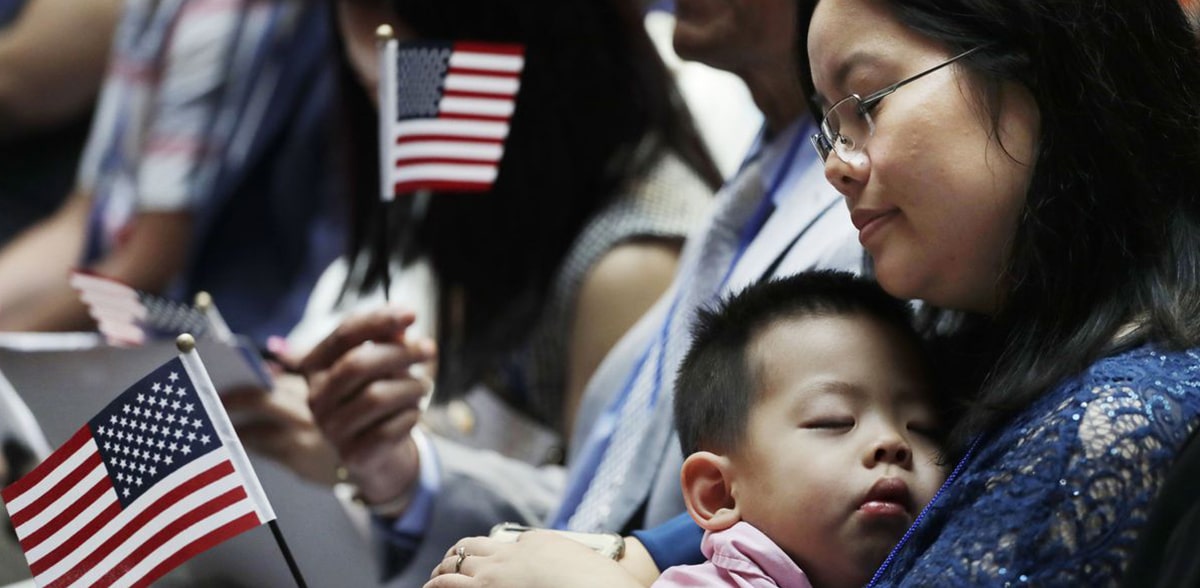
America is a huge, diverse continent of native peoples and immigrants, both in the north and in the center as well as in the south. But the fact that United States be one of the world's powers, it has made "American culture" synonymous with the culture of this country and not of the continent.
Discussion aside, today we will focus on the American culture and everything a tourist or immigrant should know before going.
USA

It is a Consitutional federal republic which is composed of 50 states and a federal districtIt has a coastline on the Atlantic and on the Pacific and borders Canada to the north and Mexico to the south. In addition, there are the beautiful islands of Hawaii and in both the Pacific and the Caribbean Sea it has some unincorporated territories.

The United States has little more than 9.80 million square kilometers and the population is 331 million people. Its population is diverse, a product of the melting pot that immigration led to since the time it was a European colony. The fate of the native peoples was the same as in the rest of America, the conquest, the removal of their lands and death at the hands of diseases brought from Europe.
Travelers and immigrants

Living outside your home country is sure to be a challenge and at the same time a great learning experience. The best thing is to know the culture beforehand, read, internalize, open your head to accept the differences.
When we talk about American culture We can talk about several issues: self-sufficiency, independence, equality, informality, punctuality, being direct, privacy and personal space and then certain customs that have to do with behavior in public, meeting people, going out to bars, to dinner or to make friends with Americans.
With respect to self reliance We can say that it is a value that the media always reinforces: the self made man. Arguably, it is true, because nobody does it alone except in a context, but for a long time that is the idea that has been reinforced. Another thing is that a lot of value is placed on time, don't waste timeor purposeless, so not to mention being late for an appointment. Namely, being late is very frowned upon.

While in other parts of the world young people still live with their parents while studying at university, here this is not the norm. Upside down, finished high school, young people leave the parental home, be it for studies or work. One has to be independent and that is considered positive. Another positive idea has to do with footing, the cultural diversity that the country has has created the idea that it is a nation with the same opportunities for all.
Yes, yes, another thing that is debatable but again it is the idea that is installed from education and the media. The idea that the United States is a country of equal opportunities for all has not ceased to be repeated in the movies, on TV and in comics. Although in theory it is very beautiful, we should all have the same opportunities regardless of race, religion, gender or socioeconomic position, the truth is another.

On the other hand, while there are very hierarchical cultures, I imagine Japanese or Korean society, for example, American culture is quite informal. People speak casually, dress casually, call their bosses by their first names, there are no honorifics ... In general people are quite open and frankHe says what he thinks without being too careful. It is direct speaking and that to other cultures can annoy or in them be considered something rude. On the contrary, when the foreigner goes around to say or ask for something, the Americans are confused by it.

While Latin American cultures are friendly, open, open-door, Americans prefer that their personal space is not heavily invaded. If in Latin America kisses and hugs abound between friends and even strangers, not here in the United States. They don't like kisses or people getting too close when talking. The circle of personal space is wider than in other cultures.
They also don't like being asked about their age, how much money they make, or how much they weigh. The topics of conversation with people who are not related or close do not usually include family, religious or political issues. So, What gestures should I keep in mind if I go to the United States?

Basically: always look into each other's eyes when chatting or shaking hands (from man to man, from woman to woman and mixed), not smell ugly It is synonymous with the fact that we are not attentive to our personal hygiene and keep our distance, do not invade your personal space.
It is also considered polite to keep the door open for someone to pass, to wait patiently in queues, to treat those who provide service in a friendly and equal manner, leave tips in practically all places (hairdressers, parking lots, hotels, taxis ...).
When we go out to eat with an American we must prepare to have early dinner. In the rest of Latin America dinner is quietly after 8 or 9 at night but not here, it is earlier. When eating you do not have to hurry, you have to use a napkin, if it is between friends the usual thing is that each one pays their own and if it is not a place of fast food you have to leave a 15% tip.

Americans are used to moving around their huge country. For work, for study, they move a lot more frequently than any of us. So, it is common for people to be nice and to like to chat with people they do not know, who are curious. At the same time, it is often said that these are the reasons why Americans do not usually have friends for life, due to so much moving or changing courses in school.

Keeping all these issues in mind can help us better adapt to the time we are in the United States. Much more if we stay a long time, studying or working. It is often said that in cultural contact there are several instances: one of Honeymoon where everything is cool and exciting and the new culture is great; another instance of culture shock where the first problems start with shopping, home, transportation, language ... all of which lead to mental fatigue.
Another moment in this cultural contact is that of initial setting. At this moment the previous problems begin to be solved and one already knows which bus to take, how to pay for this and that. Perhaps the language is not yet entirely easy, but the basics are beginning to remain on the hard disk of the brain. It is followed by a hard period of mental isolation where distance begins to weigh with family and friends and the daily natal life and then loneliness weighs.
And finally, if the time comes, finally there is a moment of acceptance and integration where a complete routine has already been adopted, habits and customs, food, etc. have been accepted. We begin to feel more comfortable. This cycle is quite normal and everyone who has emigrated to another country usually goes through.